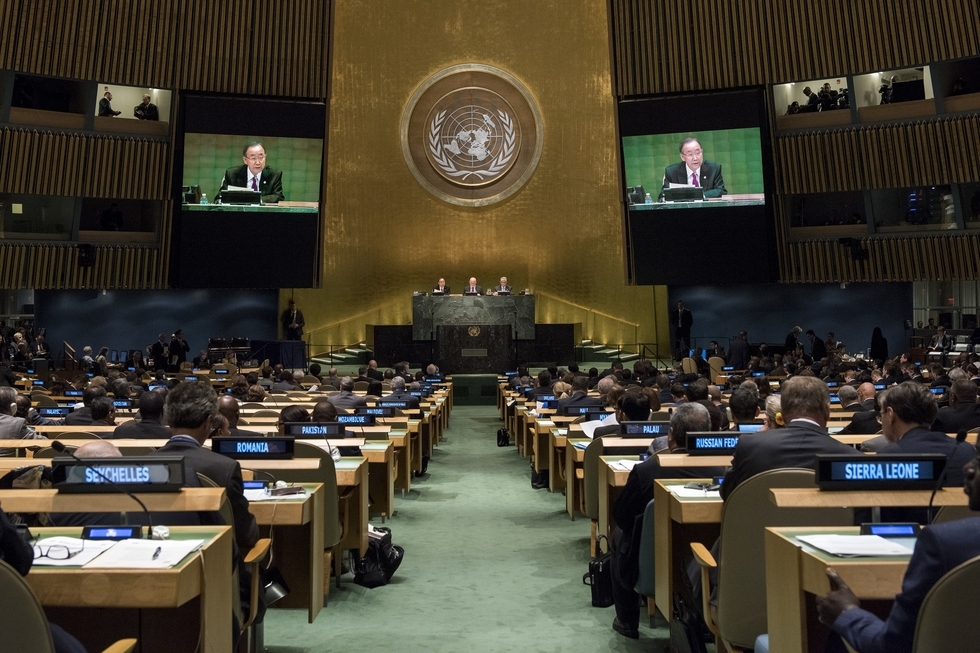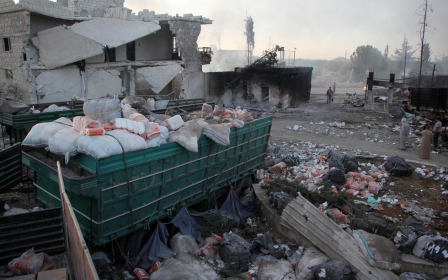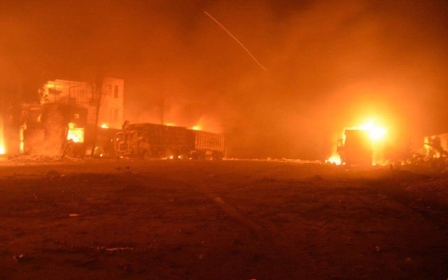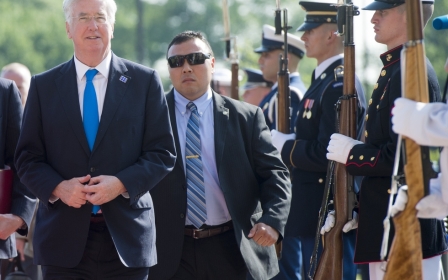UN chief slams Syrian government for 'sickening' violence

The outgoing United Nations secretary-general on Tuesday directly accused the Syrian government of killing the most civilians in the country’s five-year civil war.
While giving his final address to the UN General Assembly, Ban Ki-moon said on Tuesday that the future of Syria “should not rest on the fate of a single man” - a reference to President Bashar al-Assad.
Ban criticised ongoing atrocities in Syria but he pointed the finger specifically at Assad’s government as being the most responsible for civilian deaths.
“Present in this hall today are representatives of governments that have ignored, facilitated, funded, participated in or even planned and carried out atrocities inflicted by all sides of the Syria conflict against Syrian civilians,” he said.
“Many groups have killed innocent civilians, none more so than the government of Syria, which continues to barrel bomb neighbourhoods and systematically torture thousands of detainees.”
Denouncing the "sickening, savage and apparently deliberate attack" on an aid convoy in Syria on Monday, Ban said: "Just when you think it cannot get any worse, the bar of depravity sinks lower."
The UN chief hailed the aid workers on the convoy to Aleppo province as "heroes" and said "those who bombed them were cowards" before calling for accountability for crimes committed in the war.
He also took a swipe at "powerful patrons" involved in the Syria war, without naming them. Assad's strongest allies in the war are Russia and Iran.
Russia and Syria have both denied attacking the convoy as it unloaded just outside Aleppo. Russia's defence ministry said the convoy caught fire.
The Syrian Red Crescent said 21 people were killed in the attack, which was denounced by the UN as a possible war crime.
New MEE newsletter: Jerusalem Dispatch
Sign up to get the latest insights and analysis on Israel-Palestine, alongside Turkey Unpacked and other MEE newsletters
Middle East Eye delivers independent and unrivalled coverage and analysis of the Middle East, North Africa and beyond. To learn more about republishing this content and the associated fees, please fill out this form. More about MEE can be found here.




